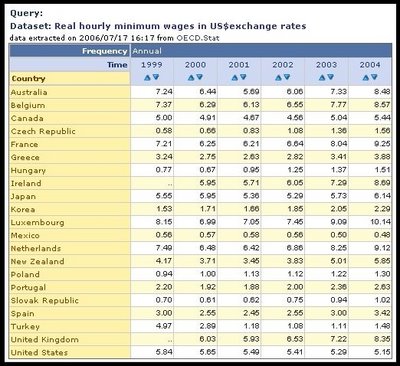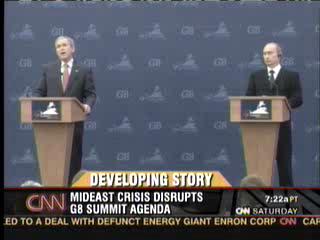I don't think most people outside the U.S. are quite aware of the intensity of the culture war waging in this country over the last few years. It may be difficult to define the term “culture war” but to put it in a nutshell, it is the polarization of the debates over some issues such as abortion, homosexuality, prayer in school, separation of church and state, gun control which have all become “hot buttons” dividing Americans along two lines – one rather progressive and one more conservative.
The polarization of ideas is nothing new in this country but the difference is that what used to be a war between two ideological world views (which also divided Christians between progressivism and conservatism) has now become a religious war in which evangelicalism - the largest and the most active group of Christians in America – is now associated with the conservative agenda of the Christian Right and the Republican Party. It also seems that this culture war has intensified after 9/11 when the country’s mood turned more militaristic, jingoistic and unilateral.
However, there are some dissenting voices in the evangelical world. Jim Wallis who is also a very influential religious figures in the US is a good illustration of a new attempt at a bipartisan agenda (which he called A Covenant for a New America) focusing on overcoming poverty in the U.S. and throughout the world instead of focusing on the usual “hot-buttons”.
Yesterday, the NYTimes (via Kevin Drum) published an article on those other dissenting voices in the evangelical world.
“There is a lot of discontent brewing,” said Brian D. McLaren, the founding pastor at Cedar Ridge Community Church in Gaithersburg, Md., and a leader in the evangelical movement known as the “emerging church,” which is at the forefront of challenging the more politicized evangelical establishment.
“More and more people are saying this has gone too far — the dominance of the evangelical identity by the religious right,” Mr. McLaren said. “You cannot say the word ‘Jesus’ in 2006 without having an awful lot of baggage going along with it. You can’t say the word ‘Christian,’ and you certainly can’t say the word ‘evangelical’ without it now raising connotations and a certain cringe factor in people.
I can’t agree more with the paradox emphasized by the Rev. Boy in the article that whereas Christians these days are constantly outraged about sex and perceived violations of their rights to display their faith in public, never did Jesus push those “hot buttons”.
As Jim Wallis also said:
"Jesus didn’t speak at all about homosexuality. There are about 12 verses in the Bible that touch on that question.....There are thousands of verses on poverty. I don’t hear a lot of that conversation."
The discontent may be growing but there are still casualties of war. Read this article (also published in the NYTimes) about a Jewish family in Delaware who simply asked the district school board to "consider prayers that were more generic" and who finally had to move out after receiving several threats. The tension is so high that the family that joined them in the following suit decided to remain anonymous. Is that what a free country should be about?
It is not clear to me at this point whether the discontent is really brewing and whether people will finally get sick of seeing their faith used for political agenda. As a Christian myself, I whole heartedly agree with Wallis though when he told Christians to not go right or left but deeper.
NOTE: The Atlantic Monthly also has some interesting historical background here.
NOTE2: Interestingly, I find that all missionaries I know who have lived abroad for an extensive period of time come back to the US with a much more "progressive" view than those who have stayed in their local church and yet support them. It sometimes result in some interesting discomfort.




















